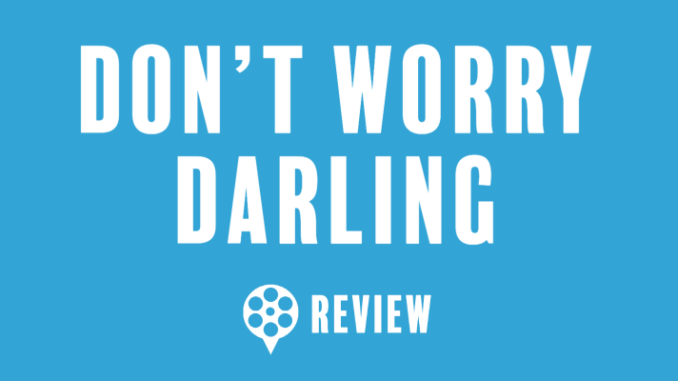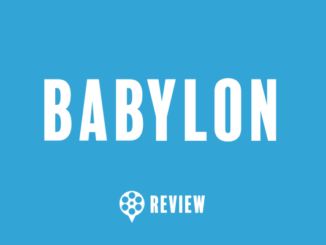
I’ve always been drawn to a film when an actor steps behind the camera and takes a crack at directing. In 2019, Olivia Wilde became the latest of many to transition to directing with her debut, Booksmart. With Booksmart, Wilde instantly became a director whose work should be on everyone’s radar as the film added a fresh spin to the coming-of-age tale.
Don’t Worry Darling, her follow-up to Booksmart, instantly jumped to the top 10 of my most anticipated films of 2022, and I had high expectations. With Wilde’s direction and a lead as talented as Florence Pugh, I felt this film was not to be missed. Unfortunately for Wilde, Don’t Worry Darling is ripe with worry. A puzzle in which its pieces don’t quite fully fit as its inconsistent third act reveal will leave cinephiles wondering, “what could have been?”
Don’t Worry Darling follows Jack and Alice, a married couple living a life that might seem mundane to some and ideal and picturesque to them. Every morning, Alice cooks Jack a breakfast that he is always too in a rush to eat. While Jack and all the husbands are away at work for the Victory Project, the housewives spend their day cleaning, gossiping, and shopping until their husbands return home.
After discovering missing yolk in the eggs she’s cooking with during her usual routine, Alice becomes aware that something isn’t right in this sunny town and quite possibly with its inhabitants. With a setup so intriguing, it’s unfortunate that Alice’s curiosity leads to the most uninteresting and surface-level answers.
Don’t Worry Darling works best regarding its score, cinematography, production design, and performances. The 50s landscape was both unnerving and beautiful to lay my eyes on. With this backdrop, Wilde crafts an aesthetic that creates a feeling of “Boy, would I love to live in this town” and “Hmm, everything feels too perfect. What is really going on here?” These two feelings create distinct tension and curiosity in unwrapping the many layers of this mystery.
Matthew Libatique’s cinematography aids in bringing Wilde’s vision to the screen. Libatique’s lens beautifully captures Alice’s awe and fear as she discovers her life and this town isn’t what it seems. If there is an unsung hero in this film, it is John Powell’s dreary and bombastic score that adds to the film’s most climactic moments, and even with the film hitting its low points, Powell’s score remains intact to elevate the movie.
When looking at Harry Styles and Florence Pugh, it’s a mixed bag of incredible potential. Styles gives it his all and shows the actor’s future potential in this business. Regrettably, some of Styles’ lines fall a bit flat. However, there is much excitement for Styles in The Policeman, which coincidently is premiering at TIFF this month.
Florence Pugh’s performance is downright masterful. In a similar fashion to a horror film from a few years back, Midsommar, Pugh elevates the material with a thunderous and powerful performance. Blending both happiness and fear, Pugh creates an authentic portrayal that makes all the controversy that has floated around about her dedication to the film come off as quite comical.
The film falls apart with its third act twist and character motives. It’s not hard to see a reveal on the way; however, it undermines the film’s first two acts when it arrives. Rather than a continued focus on Alice’s downward spiral and its themes of gender roles in today’s society, Katie Silberman’s screenplay goes for an M. Night Shyamalan-like twist that immediately removes steam from the film. While Olivia Wilde’s direction is impeccable, Silberman’s screenplay ultimately sinks.
The biggest sin with its third act twist is how surface-level it is. Rather than adding a unique voice to the psychological thriller, the screenplay follows the beats cinephiles have been privy to and fails to give a new flavor to an already overdone sub-genre. Even in its action-packed final 10 minutes, the film never fully recovers from this lousy twist.
It’s frustrating to leave the film wondering what could have been with Don’t Worry Darling. With so many elements of the film that do work, it’s a shame the film ultimately failed to resonate with me. It’s ok to have a broken puzzle at the beginning of the film, but it’s crucial that its pieces finally come together, and in the case of Don’t Worry Darling, those pieces don’t ever complete the puzzle.





